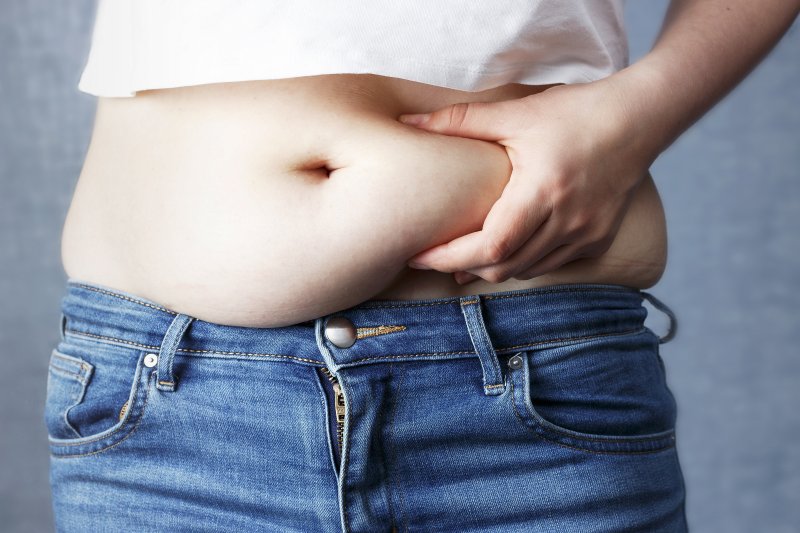
While there are many factors that can contribute to sleep apnea in Newburyport, weight is one of the most influential. According to the American Diabetes Association, the vast majority of adults with obstructive sleep apnea (about 60% to 90%) are also overweight. In other words, if you suffer from obesity, odds are that you are also struggling with a sleep disorder. And to make things worse, just as sleep apnea causes weight gain, weight gain can cause sleep apnea! Learning more about this relationship can help you break the cycle and improve your sleep quality along with your weight management.
How Gaining Weight Can Cause Sleep Apnea
People who are overweight or obese tend to have deposits of fat around their neck known as pharyngeal fat. When you fall asleep and allow the muscles around your airway to relax, pharyngeal fat can collapse and block the flow of oxygen. This results in loud snoring as the body works to squeeze air through a smaller space. If breathing stops altogether, the result is a sleep apnea episode that forces you to wake up so that your body can resume breathing. Sleep apnea episodes can happen as often as 100 times per hour; needless to say, such frequent awakenings will make it impossible to get enough rest, causing you to feel exhausted during the day. You could also eventually experience heart problems as a side effect of the stress that sleep apnea puts on your body.
How Sleep Apnea Can Cause Weight Gain
Your appetite is managed by two hormones: leptin and ghrelin. Ghrelin makes you feel hungry while leptin makes you feel full. Under normal circumstances, these hormones work together to manage your body’s food intake. However, sleep deprivation can cause the body to produce less leptin while also increasing ghrelin levels. Consequently, people with sleep apnea may be more prone to overeating and craving calorie-rich foods, thus leading to significant weight gain. Furthermore, because sleep apnea causes you to have less energy, you may find it more difficult to maintain the physical activity levels needed to maintain healthy body weight.
Treating Sleep Apnea and Obesity
Since sleep apnea and obesity are linked, treating one will make it easier to manage the other. Sleep apnea is commonly treated with CPAP therapy, but oral appliances are also highly effective. As for obesity, there are numerous strategies for losing weight; your regular doctor can help you figure out what the best approach is.
Are you concerned about the impact that sleep apnea might be having on your life or your weight? Don’t waste any time; call your dentist in Newburyport to talk about the steps you can take to improve your sleep. It is never too late to begin a healthier lifestyle.
About the Author
Dr. J. Peter St. Clair is currently continuing his education in different areas of dentistry, including dental sleep medicine. He wants to be able to help patients fully understand their oral health and give them the tailored options they need to improve their quality of life. At Dental Partners of Newburyport, he can provide oral appliances for treating sleep apnea. If you have concerns about the quality of your sleep or how a lack of rest might be affecting your body, schedule an appointment by visiting his website or calling (978) 465-5358.
 (978) 465-5358
194 High
St
(978) 465-5358
194 High
St